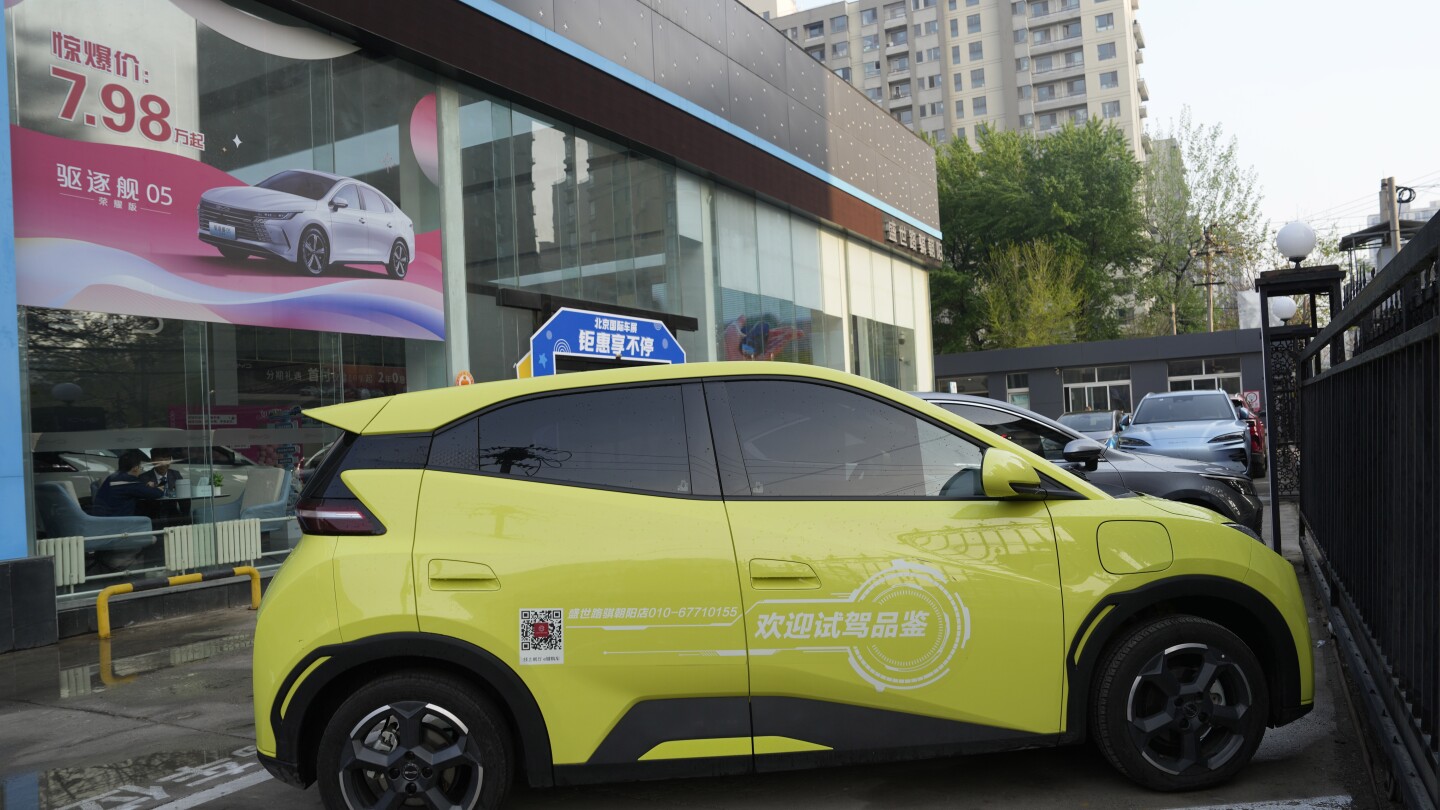A tiny, low-priced electric car called the Seagull has American automakers and politicians trembling.
The car, launched last year by Chinese automaker BYD, sells for around $12,000 in China, but drives well and is put together with craftsmanship that rivals U.S.-made electric vehicles that cost three times as much. A shorter-range version costs under $10,000.
Tariffs on imported Chinese vehicles probably will keep the Seagull away from America’s shores for now, and it likely would sell for more than 12 grand if imported.
But the rapid emergence of low-priced EVs from China could shake up the global auto industry in ways not seen since Japanese makers exploded on the scene during the oil crises of the 1970s. BYD, which stands for “Build Your Dreams,” could be a nightmare for the U.S. auto industry.
“Any car company that’s not paying attention to them as a competitor is going to be lost when they hit their market,” said Sam Fiorani, a vice president at AutoForecast Solutions near Philadelphia. “BYD’s entry into the U.S. market isn’t an if. It’s a when.”



UAW labor doesn’t cost more because its workers are paid well. UAW labor costs more because of our private health care system dumping workers into an extractive for-profit insurance system and the pensions system has been defrauded for decades. And even then, the margins on these vehicles are such that labor costs are negligible, particularly with the enormous amount of automation that goes into line work now.
That’s before you get into how many auto plants have been de-unionized, either by moving them south of the Mason-Dixon Line or by setting up two-tiered contracts that phase out older union workers for younger scabs.
That’s because they don’t have access to Chinese state benefits. No state pensions. No state health care. Stripped down public education. Crappy old roads instead of public rail. 90% of the population owning their homes rather than renting. Medicare and SS benefit cuts forcing folks to work into their 70s and 80s, rather than retiring comfortably at the age of 54
That’s why Chinese labor is cheaper.
Toyota plants aren’t unionized. We just saw an effort to unionize a plant in Troy, Michigan this year and its been fought tooth and nail by the industry.
“paid well” only has meaning in the context of standard of living, or cost of living. You provided that context. Within it they’re paid relatively well. They’re not getting state pensions or healthcare anytime soon so we work within the context.
They are not.
This exposé is a bit suspect, or at least this part is which makes me question the integrity as a whole:
Average human walks 3mph. This dude apparently never sleeps.
The whole thing reads like a corporate “uNioNS BaD” article